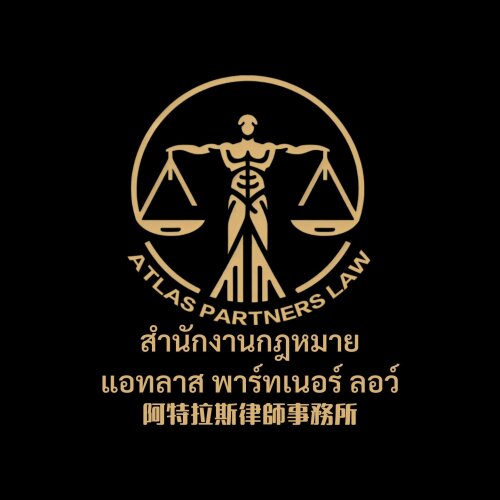Best Appeal Lawyers in Chiang Mai
Share your needs with us, get contacted by law firms.
Free. Takes 2 min.
List of the best lawyers in Chiang Mai, Thailand
Legal guides written by SIAM LEGAL INTERNATIONAL:
- Defamation Laws in Thailand: Criminal Charges and Civil Suits
- The State of Thailand’s Long-Term Resident (LTR) Visa Program in 2025
- The Penalties Of Not Filing Your Income Tax Return As A Foreigner In Thailand
About Appeal Law in Chiang Mai, Thailand
Appeal law in Chiang Mai, Thailand, operates within the broader framework of the Thai legal system. In Thailand, individuals have the right to appeal decisions made in lower courts to higher courts. Chiang Mai, being part of Northern Thailand, follows the same procedural rules and regulations as the rest of the country. Appeals are reviewed primarily to assess whether the lower court's decision was based on sound legal principles and whether any procedural mistakes occurred that could influence the outcome. It is crucial for appellants to understand that appeals are not opportunities to present new evidence, but rather to argue that the application of the law or the proceedings in the lower court were flawed.
Why You May Need a Lawyer
Engaging a lawyer for an appeal in Chiang Mai can be essential for several reasons. Individuals may feel that the trial did not proceed fairly or that the verdict was unjust due to misinterpretation of the law. Other common situations include procedural errors, misapplication of legal principles, the emergence of new interpretations of law, or ineffective representation in the initial trial. A skilled lawyer can help identify viable grounds for appeal, prepare the necessary documentation, and represent the appellant's interests in the appellate court.
Local Laws Overview
The appeal process in Chiang Mai is governed by Thai Civil and Criminal Procedure Codes. Key aspects include strict deadlines for filing appeals, usually within 30 days from the judgment date. The appeals process focuses on reviewing the legal aspects of the case rather than factual errors. In criminal cases, both defendants and prosecutors have the right to appeal. It's also pertinent to understand the hierarchical jurisdiction of appellate courts, which includes the Court of Appeal Region 5 for Chiang Mai and Northern Thailand, and ultimately the Supreme Court of Thailand.
Frequently Asked Questions
What is the timeframe for filing an appeal in Chiang Mai?
Typically, appeals must be filed within 30 days from the date of the lower court's decision. It's crucial to adhere to this deadline, as late appeals may not be considered.
Can new evidence be introduced during an appeal?
No, the appeals process does not allow for the introduction of new evidence. The appeal is limited to reviewing the application of law and procedural correctness of the earlier decision.
What courts handle appeals in Chiang Mai?
Appeals are handled by the Court of Appeal Region 5, covering Chiang Mai and Northern Thailand, with potential escalation to the Supreme Court of Thailand for further review.
Do I need a lawyer for an appeal?
While it is not mandatory to have a lawyer, it is highly recommended. Lawyers have the expertise to navigate complex legal arguments and ensure that the technicalities of the appeal are properly managed.
What costs are associated with filing an appeal?
Costs vary depending on the case complexity, lawyer fees, and court charges. It’s advisable to discuss fees upfront with a legal professional.
Can the opposing party appeal as well?
Yes, both plaintiffs and defendants have the right to appeal the court's decision, which is also applicable to public prosecutors in criminal cases.
What outcomes can result from an appeal?
The appellate court might dismiss the appeal, uphold the original decision, reverse the decision, or mandate a retrial.
How long does the appeal process take?
The duration varies, often taking several months to over a year, depending on the case’s complexity and the court's schedule.
Are appellate court sessions open to the public?
Yes, appellate court sessions are generally open to the public unless the court orders otherwise.
What if an appeal is unsuccessful?
If an appeal is unsuccessful at the regional level, further appeal to the Supreme Court may be possible, depending on whether there is a significant legal misinterpretation or public interest issue.
Additional Resources
Consider consulting the Chiang Mai Lawyers Association for referrals to local attorneys specializing in appeal cases. The Lawyer Council of Thailand offers resources and guidance for legal assistance. Furthermore, the Court of Justice of Thailand’s website provides legal documentation and information regarding court procedures and hierarchy.
Next Steps
If you believe you need legal assistance with an appeal in Chiang Mai, the first step is to consult with a legal professional who specializes in appellate law. Gather all relevant documents from your initial trial and arrange a consultation to discuss your options and the feasibility of your appeal. Timeliness is crucial, so ensure you act within the designated appeal period to preserve your legal rights. It may also be beneficial to continue educating yourself on the process to better understand your legal journey.
Lawzana helps you find the best lawyers and law firms in Chiang Mai through a curated and pre-screened list of qualified legal professionals. Our platform offers rankings and detailed profiles of attorneys and law firms, allowing you to compare based on practice areas, including Appeal, experience, and client feedback.
Each profile includes a description of the firm's areas of practice, client reviews, team members and partners, year of establishment, spoken languages, office locations, contact information, social media presence, and any published articles or resources. Most firms on our platform speak English and are experienced in both local and international legal matters.
Get a quote from top-rated law firms in Chiang Mai, Thailand — quickly, securely, and without unnecessary hassle.
Disclaimer:
The information provided on this page is for general informational purposes only and does not constitute legal advice. While we strive to ensure the accuracy and relevance of the content, legal information may change over time, and interpretations of the law can vary. You should always consult with a qualified legal professional for advice specific to your situation.
We disclaim all liability for actions taken or not taken based on the content of this page. If you believe any information is incorrect or outdated, please contact us, and we will review and update it where appropriate.













